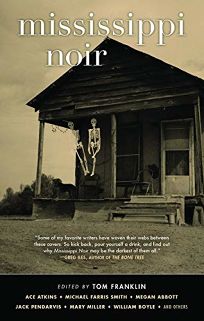Fifteen years ago, I could send my stories to about thirty potential markets. A few were literary, some were supernatural or sci-fi, a couple were romance. Most of my work was crime/mystery, but I had those other options.
Many of those markets are gone now. The landscape changes more quickly than we can keep track of it, especially since the pandemic, but keep track of it we must.
I currently have at least one submission at each of the mystery markets that still takes stories year-round. I have stories ready to send to the markets that open sporadically, too. I used to write a novel and three or four short stories a year, but, in the last year, I have produced twenty-three short stories and no new ideas for a novel. The changing market is a factor, and I've started paying attention to the territory more than the map.
Fifteen years ago, if I got an idea for a short story--which didn't happen often--I wrote it and looked for a place to send it because there were so many potential markets. Now, I look at the markets and submission calls first and use those submission calls as writing prompts.
Yes, I'm looking for novella markets, too, even though I only write one novella a year, and that's for a contest I have won twice. Are there more anthologies now, or am I simply paying more attention?
In the last year, I have sold twelve stories, five still due to be published. Ten of those twelve sales are to anthologies.
Anthologies often have a specific theme, the idea that I use as a prompt. Last year, one story appeared in Heartbreaks and Half-Truths, about love gone bad.
Another was in Mickey Finn: 21st-Century Noir. A third ws in The Killer Wore Cranberry, a collection of humorous murder stories involving Thanksgiving. There is at least one Christmas anthology looking for material, and one of my unsold stories was rejected by another holiday collection.
I've always been able to write fairly quickly to a prompt. It's no different from the years of essay tests in high school and college, expecially grad school.
But there's another reason I'm paying more attention to anthologies now, too. Time for a brief history lesson.
When the Mystery Writers of America added short stories as an Edgar Award category in 1951, the award went to the best collection of short stories for the year. In 1955, an individual story won for the first time, Stanley Ellin's "The House Party," which appeared in Ellery Queen's Mystery Magazine.
Before the mid-1970s, "mainstream" magazines often printed the Edgar-winner. The Saturday Evening Post, Cosmopolitan, The New Yorker, and McCall's all featured a winning story, some of them several times. So did Argosy, Esquire, and Story. Between 1976 and 1998, Playboy published four of the Award-winners, three of them written by Lawrence Block.
After about 1975, the winners seldom appeared in mainstream publications and tended to show up in magazines that catered to the mystery reader. Ellery Queen's Mystery Magazine printed the earliest individual story to win, and has published 21 winners since then. Alfred Hitchcock's Mystery Magazine has published three.
The terrain took another shift at the turn of the century. Since 2000, Ellery Queen has published three Edgar winners, but all the others come from an anthology or a collection of stories by one author (Laurie Lynn Drummond in 2005 and Stephen King in 2016). For mystery writers, this is both good news and bad news.
It's bad news because anthologies usually don't pay much. Generally, the author gets a royalty share divided by the number of writers in the collection. Last year, I made $3.08 from one anthology. Most anthologies don't sell many copies, either, so when you divvy up the take, there's not much to go around.
One glaring exception is the Mystery Writers of America anthology Vengeance, published in 2012. I received a roylty check last December, and that story– nominated for an Edgar but losing to Karin Slaughter's story in the same collection– has made me more money than all except two other stories, and they both won contests. My story appeared between the covers with stories by Alafair Burke, Dennis Lehane, Michael Connelly, Karin Slaughter, and other big names. It's the best exposure I've had since Border's Books went under. The local store displayed mysteries alphabetically, so my novels were on the same shelf with Dennis Lehane, Elmore Leonard, and Laura Lippman. Man, I miss that store…
Exposure matters. Yeah, it's hard to pay the bills with exposure, but it beats being a complete unknown.
Some new anthology calls lean toward my music background. Over the last couple of years, we've ssen books of stories inspired by the songs of Joni Mitchell, Billy Joel, Steely Dan, the Ramones, or hits from the 1960s. There are more music-themed collections taking submissions as I post this. Now maybe I can write off all those records I've bought as a business expense.
Yes, you have to hear abut the submission call somehow. Maybe you're in a writing group (Short Mystery Fiction Society, for example. Rob Lopresti is the reigning President) that passes the word along. Maybe you're Facebook friends with someone or on a blog site.
The MWAS anthologies have produced the Edgar-winning story four times since 2002. But you have to be an active member of the group to submit a story. The Akashic NAME YOUR CITY Noir series, now numbering several dozen books, is by invitation only. This may be true of many others, too.
But as anthologies proliferate, they give me more writing prompts. Not only are ten of my last twelve sales to anthologies (including next year's MWA collection, Crime Hits Home, edited by SJ Rozan), but I have sent five other stories to submission calls. And I'm working on two others.




